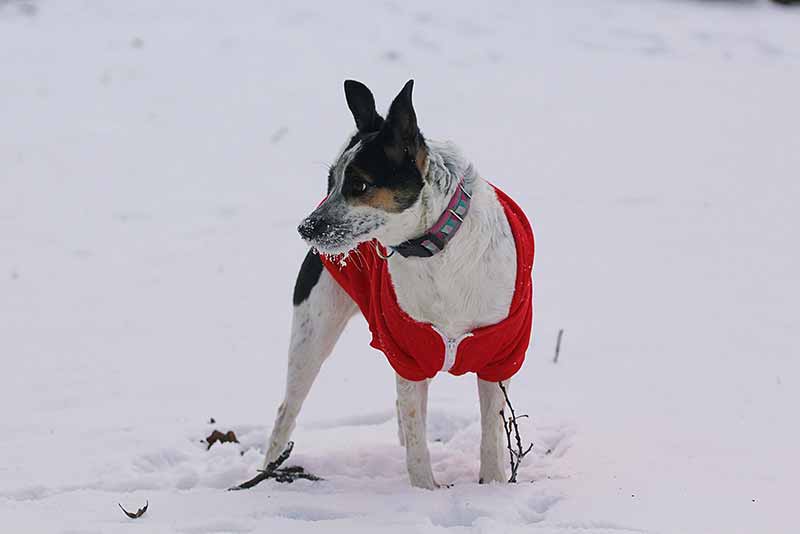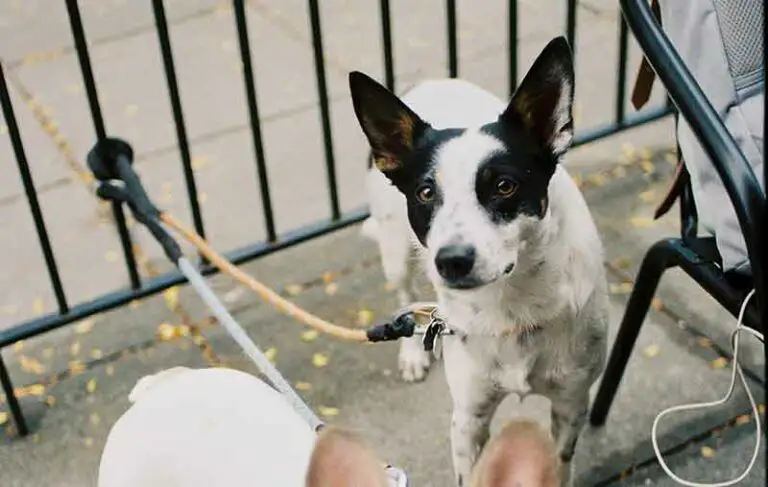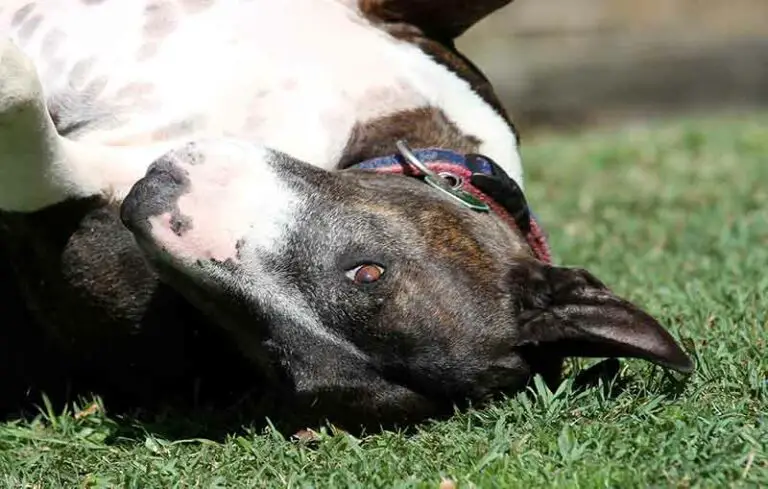Rat Terrier Old Age Problems – How To Care Your Senior Rattie?
This article will answer and give you tips to address one of the frequently raised concerns by the Rat Terrier owners; the Rat Terrier old age problems. Any dog would undergo different issues as they age, so knowing about preventing care is essential for dog owners.
Although they are very energetic, Rat Terriers also face difficulties with aging. However, there are actions that a Rat terrier owner could take to tackle the health concerns and take good care of the pet in their old age.
So, what are the old age problems of Rat Terriers? There are several Rat Terrier old age problems can be seen commonly such as Joint Issues, Dental Problems, Vision and Hearing Loss, Cognitive Decline, Reduced Energy, Exercise intolerance, Obesity andIncreased Susceptibility to Illness.
In the early 1900s, farmers developed a Terrier dog breed to eliminate vermin, rats, and other farm pests. These lively and smart little dogs were known as Rat Terriers, and sooner they became demanding farm dogs in the United States.
Not only do they gain fame as hunting farm dogs, but they also tend to be a suitable breed for anyone who’s looking for an active little four-legged companion.
Rat Terriers usually enjoy a relatively long life span compared to many other dogs. This article will provide helpful insights into taking care of a senior Rat Terrier.
And following the correct actions would aid your Rat Terrier to spend its old age comfortably and enjoy the maximum life span.
Let’s get into the details!
Rat Terrier Old Age Problems
As Rat Terriers enter their senior years, they may encounter several common age-related problems. These can include:
- Joint Issues: Arthritis and other joint-related conditions can cause stiffness, pain, and reduced mobility in older Rat Terriers. They may experience difficulty in climbing stairs, jumping, or getting up from a lying position.
- Dental Problems: Dental health can deteriorate with age, leading to gum disease, tooth loss, and oral discomfort. Regular dental care and veterinary check-ups are essential to maintain their oral hygiene.
- Vision and Hearing Loss: Like humans, Rat Terriers may experience a decline in vision and hearing abilities as they age. They may become less responsive to visual cues or exhibit signs of hearing impairment. This may cause increased barking behavior.
- Cognitive Decline: Senior Rat Terriers may develop cognitive issues, such as dementia or cognitive dysfunction syndrome. This can result in confusion, disorientation, memory loss, and changes in behavior.
- Reduced Energy and Exercise Tolerance: Older Rat Terriers tend to have lower energy levels and may become less active than when they were younger. They may tire more easily during physical activities or require shorter walks.
- Obesity: Aging Rat Terriers may have a slower metabolism, making them more prone to weight gain. It is important to monitor their diet and ensure they maintain a healthy weight to avoid additional strain on their joints and overall well-being.
- Increased Susceptibility to Illness: Senior Rat Terriers may have a weaker immune system, making them more susceptible to infections, diseases, and age-related ailments. Regular veterinary check-ups and preventive care are crucial to detect and address potential health issues.
While these are some common Rat Terriers’ old age problems, it’s important to note that individual Rat Terriers may experience varying degrees of these issues.
Regular veterinary care, proper nutrition, exercise, mental stimulation, and a loving environment can help mitigate the effects of aging and improve the quality of life for your Rat Terrier in their golden years.
At what age is Rat Terrier becoming a senior?
Rat Terriers own an average life span of 15-18 years old. And this is considered relatively a longer life span compared to the average lifespan of dogs in general. To answer the question, “At what age is Rat Terrier becoming a senior” the answer would be 11- 12 years and above.
Dogs have a different way of calculating their life span than human beings. You cannot always rely on exact digits, but roughly one dog year is considered equal to 7-10 human years.
Even the life span among dogs varies based on different reasons, for instance, depending on their breed as well as their body size. Studies have shown that small dogs live relatively longer than gigantic ones, mainly due to their genetic differences.
Rat Terriers are small-sized dogs, and they are active and energetic. Therefore they have a longer life span. However, you may notice significant changes in their behavior and personality once they reach 11-12 years old. So around this age, a Rat Terrier gets the senior dog status.
Signs of Rat Terrier is getting old
You know how lively these little canines are if you already own a Rat Terrier. These dogs inherit so much energy in their tiny bodies.
Not only are they energetic and playful, but they are also very alert about things happening around them.
This behavior and outgoing charisma eventually change as they grow old. And below are some of the common signs that you can observe when your Rat Terrier is getting old.
Find out – Jack Russell and Rat Terrier Mix (Jack Rat)
- Being lethargic
Rat Terriers were initially bred as farm dogs; therefore, they naturally inherit bold personalities. Even though they could be a bit aggressive and stubborn sometimes, once you train them from a young age, they socialize very well with the family.
Rat Terriers are enthusiastic and curious little dogs that often seek fun; this makes them very playful. But as they grow old, you may notice that they start getting lethargic, which you barely see at their young age unless there is a particular concern.
Once your Rat Terrier reaches the age of 11 or above, their active personality traits will slowly fade away.
- Sleeping more than usual
As already mentioned in this article, Rat Terriers are energetic dogs. Still, they don’t forget to spend a reasonable amount of time sleeping and relaxing.
Read – Rat Terrier Training Guide
Roughly, they tend to spend around 8-13 hours per day napping. When they reach their senior age, you may notice that they sleep more often than usual.
They’ll probably spend more time sleeping and relaxing rather than playing; this is a standard change that you can notice as your Rat Terrier gets old.
- Mood changes
You can also notice evident changes in your Rat Terrie’s mood as they age. Once your Rat Terrier reaches their senior age, they may indicate mood swings.
Read – Are Rat Terriers And Cats Getting Along?
Such mood swings could happen in two ways; in most cases, they’ll act out more calm and quiet than usual, but sometimes they can be more grumpy too.
If you notice frequent mood changes in your Rat Terrier once they reach the age of 11 or more, that could most probably be a result of aging.
What illnesses are Rat Terriers prone to in their old age?

Dog owners usually put a lot of effort into keeping their beloved companion healthy. Like it or not, pretty much every dog goes through health issues when they are old.
Read – Are Rat Terriers Brindle?
Here are some common illnesses that Rat Terriers could undergo during their old age along with the above discussed Rat Terrier old age problems.
- Seizure disorders
A Rat Terrier could face seizure disorders at any stage of their life, but when they are old they are more vulnerable to getting seizures. Simply put, a Seizure is a neurological health concern.
Once your Rat Terrier gets a seizure, it will lose control of its body. When they are old, their organs will be weak, and they have more tendency to get kidney and liver diseases, which could lead them to have seizures.
Did you know – Rat Terriers are Hypoallergenic
Seizures usually end in a short period, but sometimes it happens constantly, and the reason behind it may not be apparent. That condition is known as Idiopathic Epilepsy.
- Heart diseases
Rat Terriers are also prone to Heart problems in their older age. MVD or the Mitral Valve Disease is considered a common health concern among old Rat Terriers. This heart condition is caused due to weakening of a valve.
It’s important to remember that aging is not the sole reason behind your Rat Terriers Heart disease.
Most Heart diseases tend to be an inherited condition among small dog breeds, and as they grow old, they may get more exposed to it.
- Eye issues
Rat Terriers catch eye issues as they age. The most typical condition is known as Primary Lens Luxation. It’s a condition where their eye lenses get dislocated.
There is no precise reason to explain what causes this issue; it is considered an inherited condition.
How to cope with Rat Terrier old age problems?
Though you cannot wholly avoid the aging issues of your Rat Terrier, you can certainly take precautions.
It’s essential to take such precautions because it plays a huge role in diminishing the threat it could cause to your pet’s life.
Let’s look at some of the actions you can follow to address Rat Terrier’s old age problem.
- Pay attention to the routine care
When you adopt a dog, you usually follow routine care to ensure that your dog stays healthy and happy. As they age, you have to be more cautious about your Rat Terrier’s regular maintenance.
Little things matter a lot; therefore, you cannot ignore them. Ensure you shower them as required, check their eyes and ears, and pay attention to oral hygiene as well as the coat.
Regular grooming not only keeps your Rat Terrier comfortable, but also you can tackle some health issues at their initial stages.
Exercises might’ve been a part of your Rat Terrier’s daily routine, but you will have to change their exercise patterns as they age. This doesn’t mean senior dogs do not need exercise at all.
Still, they will be reluctant to engage in physical activities as they used to. So be mindful and engage them in exercise for a short time, perhaps a 10-15 minutes walk, to make sure they meet basic exercise needs.
Read – How Many Puppies Do Rat Terriers Have? Pregnancy Guide
It’s important not to make your Rat Terrier feel exhausted once they are old.
- Feed them good food
Appetite also plays a vital role in keeping your Rat Terrier healthy. You have to train them to have a good appetite from the early stage and keep continuing it.
In a long-term aspect, this avoids health issues to a reasonable extent. During their senior age, it’s essential to give your Rat Terrier high-quality food but in small quantities because if you overfeed them in older age, they could quickly come across health issues like diabetes and heart diseases.
Also, if your old Rat Terrier is already facing health complexities, consult a vet and change into an appropriate diet.
- Regular checkups with the veterinarian
This is one of the vital things you have to do when your Rat Terrier reaches senior age. Sometimes when you deny small changes in your old Rat Terrier, it may end up in the wrong way.
So do not be hesitant to take your Rat Terrier to the vet as soon as you notice a change, especially once they are in their old age.
Regular checkups could help avoid many critical health issues that your Rat Terrier could potentially face with aging.
Final thoughts about old age problems of Rat Terrier
So today, you got to know about Rat Terrier’s old age problems and how to take care of them. Rat Terriers are generally healthy dogs, but they face health complexities as they age.
As dog owners, your responsibility is to have a sound knowledge about such issues and follow the correct actions. It will aid your Rat Terrier to spend their older age happily.
Thank you for reading this post. Cheers from Shaggy and Lenny!









